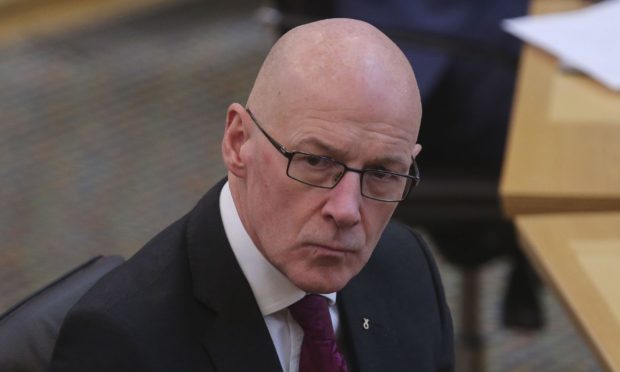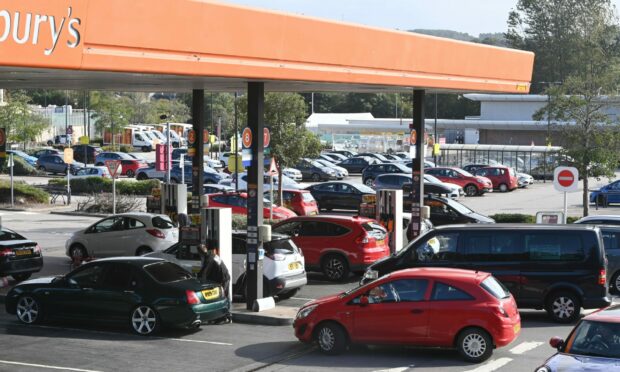Deputy First Minister John Swinney says the UK Government’s plan to offer HGV drivers temporary visas does not go far enough to address labour shortages in Scotland.
The UK Government is introducing three-month temporary visas to make it easier for foreign lorry drivers to come and work in the UK.
It is understood about 5,000 visas may be issued, with the scheme ending on Christmas Eve.
This is because a shortage of lorry drivers has disrupted fuel deliveries, causing some petrol stations to close and panic buying to ensue.
Visa plan is ‘too little, too late’
However Mr Swinney says it doesn’t address labour shortages caused by Brexit in a number of sectors.
Mr Swinney said: “This late intervention by the UK Government begins to acknowledge for the first time the disastrous impact of the end of free movement.
“It doesn’t go nearly far enough to address the loss of employees in our economy caused by the loss of free movement from the Brexit the Conservatives opted to pursue.
“It is too little, too late, in the words of Scotland Food and Drink.
“And the farmers’ union has made it clear these measures won’t address the challenges of labour availability in the long-term.
“We want the UK Government to move to a 24-month temporary workers scheme to tackle the issue.”
Mr Swinney added there is an “adequate supply” of fuel to meet normal demands, but adds this all hinges on getting it to the petrol stations.
Driver shortage not an isolated example
Mr Swinney says although the country is feeling the effects of a shortage of HGV drivers, other sectors are also seeing an impact.
He says one of the reasons hospitals are struggling at the moment is because some patients are not able to go home because a shortage of care workers is leading to a lack of care packages.
He added: “We are hearing reports of vacancies at unacceptable levels in hospitality, care, distribution, agriculture, tourism, construction and food production.
“This is not an isolated example about HGV drivers, although that is an acute challenge.
“It is a widespread problem caused by ending free movement.
“The Scottish Government is trying to encourage people who are long-term residents who are economically inactive or unemployed to become active.
“Scotland has historically low levels of unemployment.
“Despite the pandemic unemployment is just over 4%, but vacancies are 20% higher than they were before the pandemic.
“We have to encourage more people to come and live in Scotland because we don’t have a sufficient working age population.
“The fact is the UK Government opted for an appalling arrangement with the EU which could have been avoided and is inflicting economic damage on the country.”

